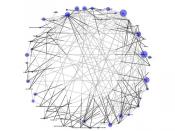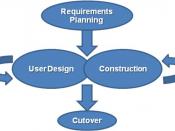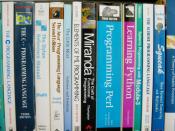Programming a computer is almost as easy as using one and does not require you to be a math genius. People who are good at solving story problems make good programmers, and others say that artistic or musical talent is a sign of potential programmer. Various computer languages are described, and tips on choosing the right language and learning how to use it are provided.
Learning how to program is actually easier than many people think. Learning to program takes about the same time as two semesters of a college course. The process of learning to program is uniquely reinforcing, because students receive immediate feedback on their screens. The programming languages Basic, Pascal, C, and Database are discussed; tips on learning the languages are offered; and a list of publishers' addresses is provided.
One way of programming is rapid application development (RAD) has tremendous powers, but it is not without its limits.
The two basic advantages RAD tools promise over traditional programming are shorter, more flexible development cycle and the fact that applications can be developed by a reasonably sophisticated end user. The main disadvantage is that RAD tools often require code to be written, which will result in most developers probably having to learn to program using the underlying programming language, except in the case of the simplest applications. The time gained from using a RAD tool can be immense, however: Programmers using IBM's VisualAge report the ability to create up to 80 percent of an application visually, with the last 20 percent consisting of specialized functions, which means by using and IBM program it is much easier because most of the program is graphics which is just point and click to do, and the rest is code, which really isn't much.
Anyone who is willing to invest...


